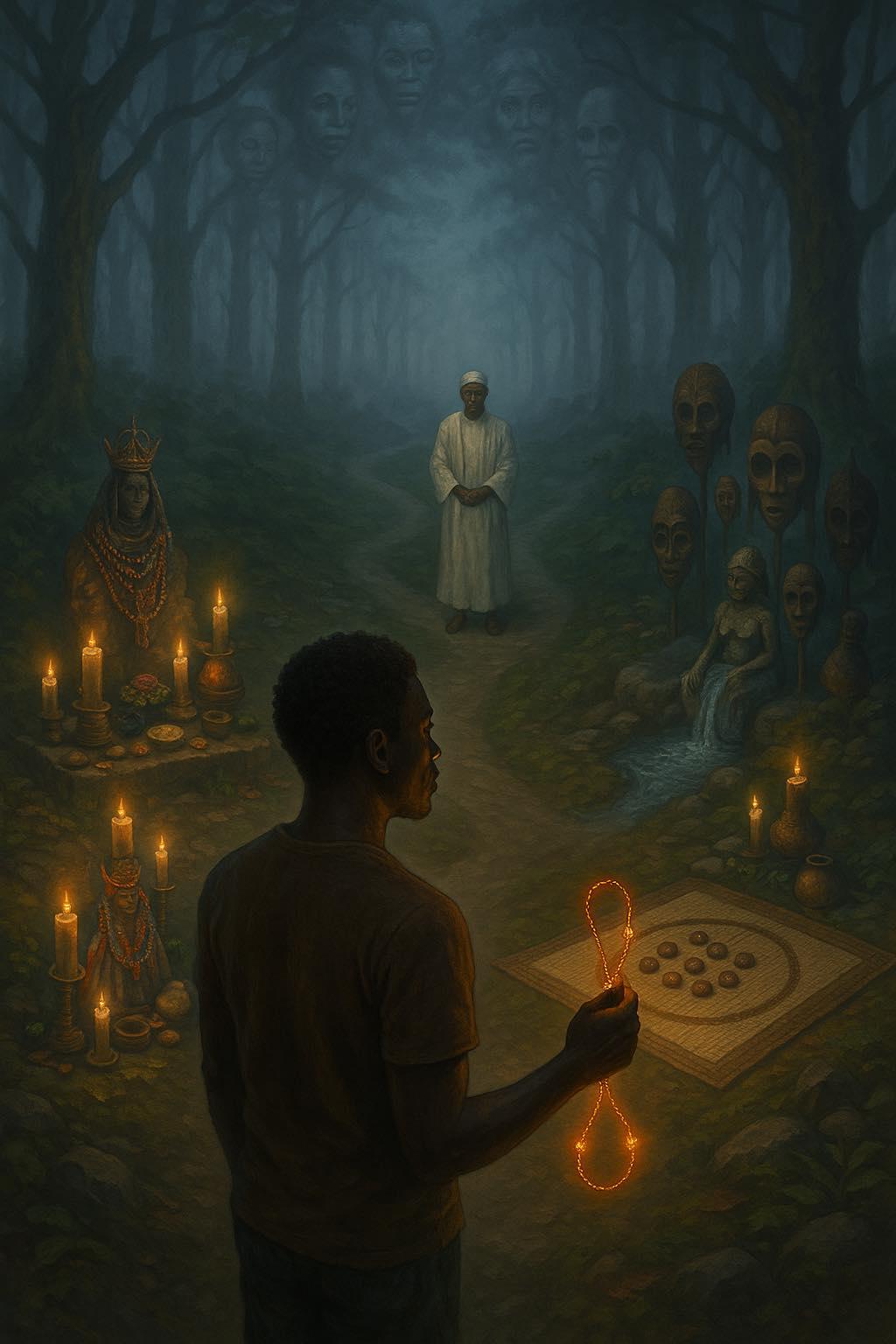
In today’s growing interest in African Traditional Religions (ATR), especially among African-descended people worldwide, many seekers are drawn to Orisha worship as a pathway to healing, connection, and identity. But what happens when initiation is done without correct alignment, without proper questioning, or through a rigid tradition that does not account for the individual’s background? What happens when spiritual guidance becomes religious evangelism?
We must talk about how many people end up spiritually destroyed—not because the Orisha rejected them, but because the diviners and priests failed to ask the right questions, or imposed one tradition as the only valid path.
Not Every Path is Meant for Everyone
Let’s start with this: Ocha is not for everyone. It is not Jesus. It is not salvation. And it is certainly not a catch-all solution for every seeker. You cannot force your way into a crown or claim a deity as your own because it feels good or looks beautiful on social media. Ifa, like other indigenous systems, is not about aesthetics. It’s about solving problems—spiritual, physical, and ancestral.
People don’t seek traditional healers because it’s cute. They come because they’ve tried everything else. Prayer. Church. Doctors. Western psychology. And nothing worked. This is not about romanticizing Orisha—it’s about survival.
The Danger of Misidentifying Orisha
Too many people end up with incorrect orí readings, confused guardian spirits, or spiritual “parents” they were never destined to have. Why? Because their ceremonies were rushed. Their diviners didn’t take into account ancestry, background, or the possibility that the person’s true guide wasn’t even part of the Santería framework.
Someone may believe they are a child of Oshun. But after multiple bajadas and Ifa consultations, it turns out Yemaya—or even Obatala—holds their crown. Worse, sometimes the correct being isn’t even an Orisha at all. It might be an Nkisi, a Lwa, a Mami Wata, or something outside the Yoruba cosmology entirely. But because no one asked the right questions—and because too many priests are stuck inside their diasporic silos—the person is blamed when things fall apart.
That is spiritual malpractice.
Tradition Is Not One-Size-Fits-All
Santería is not the only Orisha tradition. If the seeker is not Afro-Cuban, then why is their spiritual alignment being forced into a Cuban framework? Initiation, ceremonies, and cuts do not change your ancestors. They do not make you Yoruba. They do not rewrite your orí.
A person may have a “lineage of santeros,” but if their ancestry is not Cuban or Yoruba, it does not mean they are meant for Ocha. Spiritual alignment is not cultural cosplay. It is ancestral logic. It is orí logic. It is destiny.
What Real Divination Should Look Like
When we approach divination through Ifa—or any legitimate oracle—it must not be with assumptions. A real reading does not project what the diviner thinks is awesome, or what tradition they prefer. It asks:
• Is this person supposed to be initiated at all?
• If so, into which tradition?
• Which Orisha or spiritual force is aligned with their destiny—not their desire?
• What is the ancestral connection, if any, to this force?
We don’t just hand someone Oshun because they like honey and dance. We don’t place someone in Ocha because that’s the only ceremony we know how to perform.
If you’re a priest or diviner and you cannot answer those questions—if you’re just handing out crowns because of what you believe in—then you’re not guiding. You’re indoctrinating.
The Bottom Line
Spiritual work is not about feelings. It’s about facts, alignment, and consequence. This is life and death for some people. If you cannot help them, then refer them to someone who can. Stop blaming seekers for the chaos that happens when you lead them down the wrong path. Stop making idols out of shrines and forgetting that the core of Ifa and Orisha tradition is destiny.
If we are to truly honor the spirits, we must first honor the truth:
Not all crowns fit every head. And not every head is meant to be crowned.